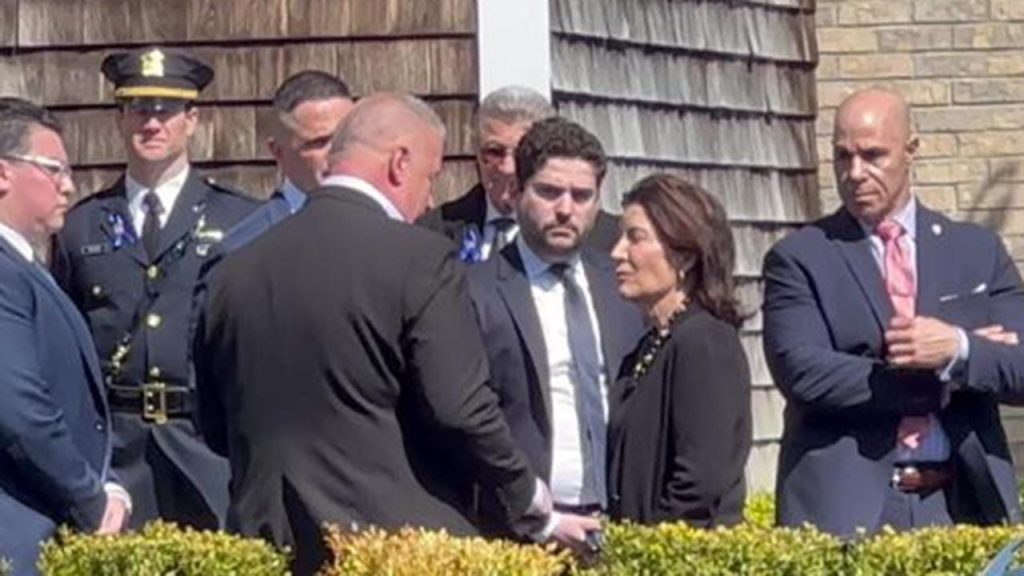New York Gov. Kathy Hochul sparked controversy recently after appearing to abruptly leave the wake of slain New York City Police Officer Jonathan Diller just minutes after arriving at the funeral home. In a video that circulated online, the governor was seen speaking with a man outside the Massapequa Funeral Home on Long Island before turning around and heading out, accompanied by clapping. The incident occurred following a letter from NYPD’s Sergeants Benevolent Association President Vincent Vallelong, who expressed disdain for elected officials attending Diller’s funeral for what he perceived as a mere photo opportunity. Vallelong emphasized that their presence was more of a distraction and a stain on the legacy of the fallen hero.
Former President Trump attended Diller’s wake, expressing sympathy for the family’s loss and emphasizing the importance of restoring law and order. Diller, a 31-year-old father, tragically lost his life after being shot in the stomach by a violent ex-con with a history of 21 prior arrests. The suspect allegedly opened fire when police approached the car he was sitting in as the passenger. The incident has reignited discussions around public safety and the challenges faced by law enforcement officers in the line of duty.
Following the incident at the funeral home, questions were raised about Gov. Hochul’s actions and the optics of her departure from the wake of a fallen police officer. The NYPD Sergeants Benevolent Association reiterated their stance against elected officials attending such events, characterizing their presence as more of a distraction than a show of support. The issue of balancing political appearances with genuine expressions of sympathy and solidarity in times of tragedy continues to be a point of contention in public discourse.
The tragic death of Officer Diller has brought renewed attention to the risks faced by law enforcement officers in the line of duty and the challenges of maintaining public safety in a complex and dynamic environment. The efforts and sacrifices made by these dedicated public servants often go unacknowledged amidst criticisms, negativity, and frivolous accusations. As the debate over policing and public safety continues, the need to honor and support those who bravely serve their communities remains a central focus for many advocates and organizations.
Reflecting on the legacy of Officer Diller, his sacrifice serves as a reminder of the risks and dangers faced by law enforcement officers each day. His tragic death has united communities in grief and solidarity, highlighting the importance of recognizing and honoring the service and dedication of those who protect and serve. As officials, organizations, and community members grapple with the aftermath of this heartbreaking loss, the call for unity, support, and respect for law enforcement officers remains a poignant and pressing issue in today’s society.
In the wake of this tragic event, the need for a balanced and nuanced approach to addressing public safety concerns and supporting law enforcement officers remains paramount. The challenges faced by those who protect and serve their communities require a thoughtful and comprehensive response that acknowledges the complexities of policing in today’s society. As conversations around public safety continue to evolve, the memory of Officer Diller and his commitment to duty and service will endure as a reminder of the sacrifices made by law enforcement officers in the line of duty.


